"There's a child in the morgue. We don't know if it's ours." How the village of Hroza is coping after the mass killing, as it prepares for the victims' funerals
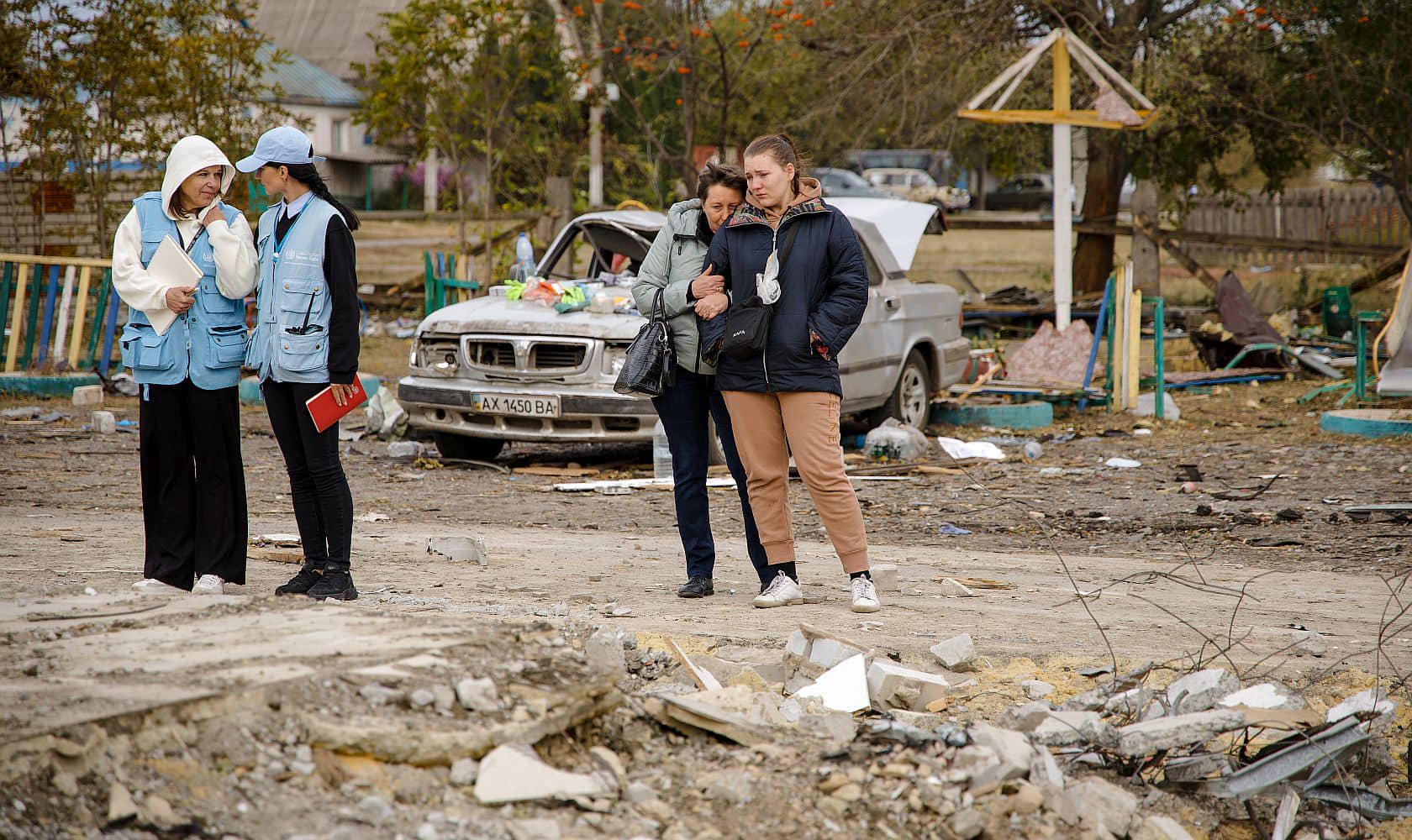
The mass killing of civilians in a Russian missile attack on the village of Hroza is a tragedy that will be remembered a hundred or two hundred years from now.
Historians, writers and film directors will not need to invent anything to augment the grim reality. On 5 October 2023, Russia took the lives of at least 52 people attending a wake in Kharkiv Oblast.
At the time of writing, several people are in intensive care. Several more are missing. The identification of body parts using DNA testing is ongoing.
Prior to Russia’s full-scale invasion of Ukraine, about 500 people lived in the village of Hroza, which is just 35 km away from the line of contact. Exactly how many stayed there after 24 February 2022 is unknown. Wikipedia and the president put the number at 330, but locals told Ukrainska Pravda reporters it is less than that.
If we go by the number of people for whom volunteers have been bringing humanitarian aid in recent months, it’s a little over 200. So with one strike, the Russians may have killed about a quarter of the village's civilians.
The Kharkiv Oblast Prosecutor's Office said the Russians may have believed that soldiers would be at the wake. It is possible that one of the locals informed the Russians where to strike.
The residents of Hroza interviewed by Ukrainska Pravda journalists don’t rule out such conjectures. They say the outright collaborators fled with the occupiers when the village was liberated in 2022, but less visible sympathisers of the Russian Federation may have stayed.
But whatever the actual reasons for the attack, they do not negate the fact that it was a war crime.
Ukrainska Pravda arrived in Hroza as the village prepared for a mass funeral and the villagers were attempting to process the tragedy.
Why has Russia remained silent?
During those days, it should have been quiet on the outskirts of Hroza around the grave of Andrii Kozyr, who had lived in Poland before the full-scale invasion and was killed fighting for Ukraine at the age of 49.
A new wooden cross, a Ukrainian flag, fresh chrysanthemums in patriotic colours, and wreaths with ribbons reading "From your family", "From your children", "From your wife" – that’s how Denys pictured his father's reburial.
But Denys, together with about five dozen other people, was killed by a Russian missile shortly after the funeral.
Two days on, the cemetery is full of noise. Lawnmowers and excavator engines drown out the sound of the wind and the sirens in the neighbouring village of Shevchenkove, warning of the threat of another Russian attack.
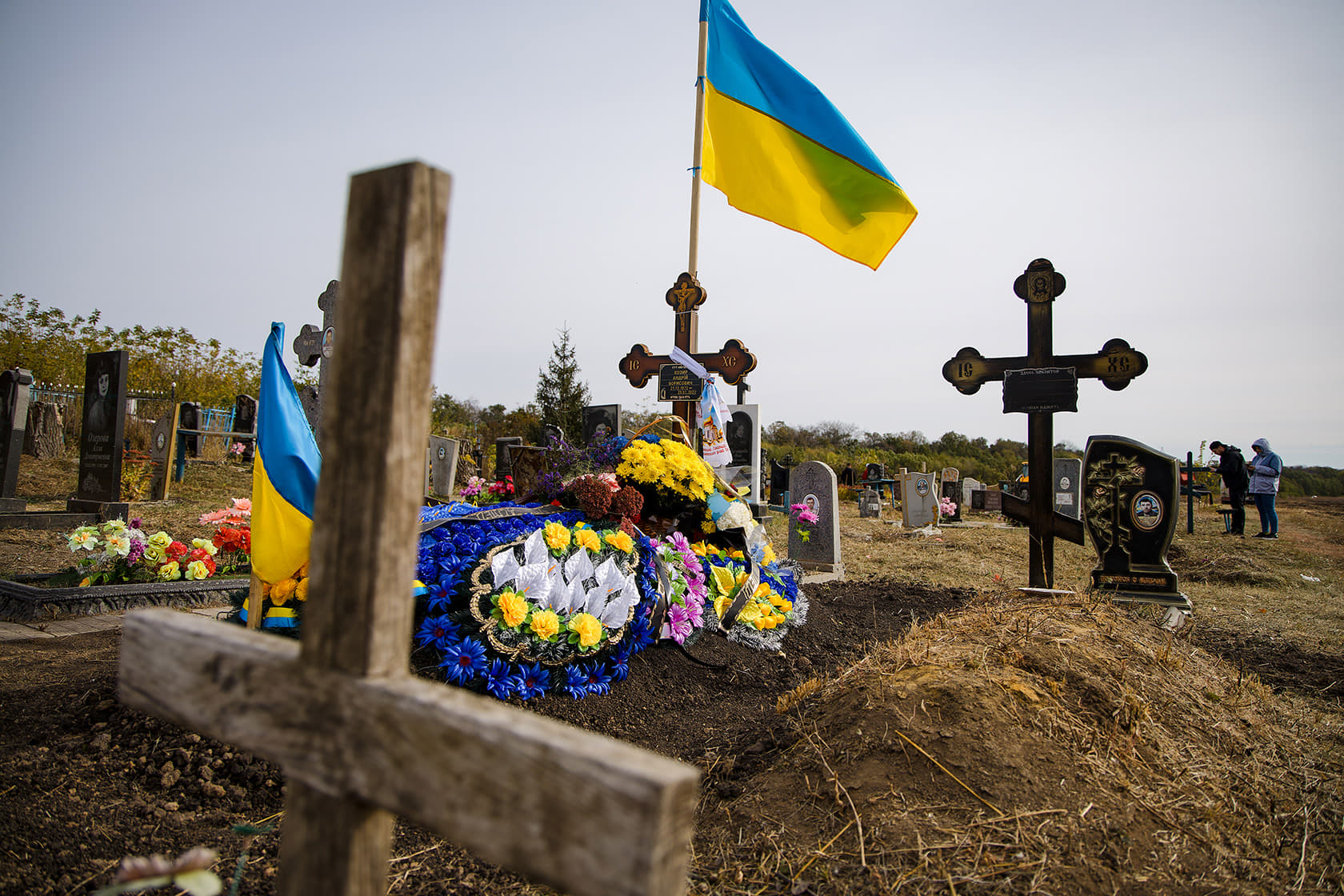
The cemetery is being cleared of bushes. Workers are marking out plots for the new burials, driving pegs into the ground and connecting them with twine. They hang up pieces of cardboard or A4 paper that say things like "Occupied", "Mukhovatyi family, 3 people", "Panteleiev family, 4 people".
The families have been promised that the first bodies and remains to have been identified will be returned to them on Monday or Tuesday.
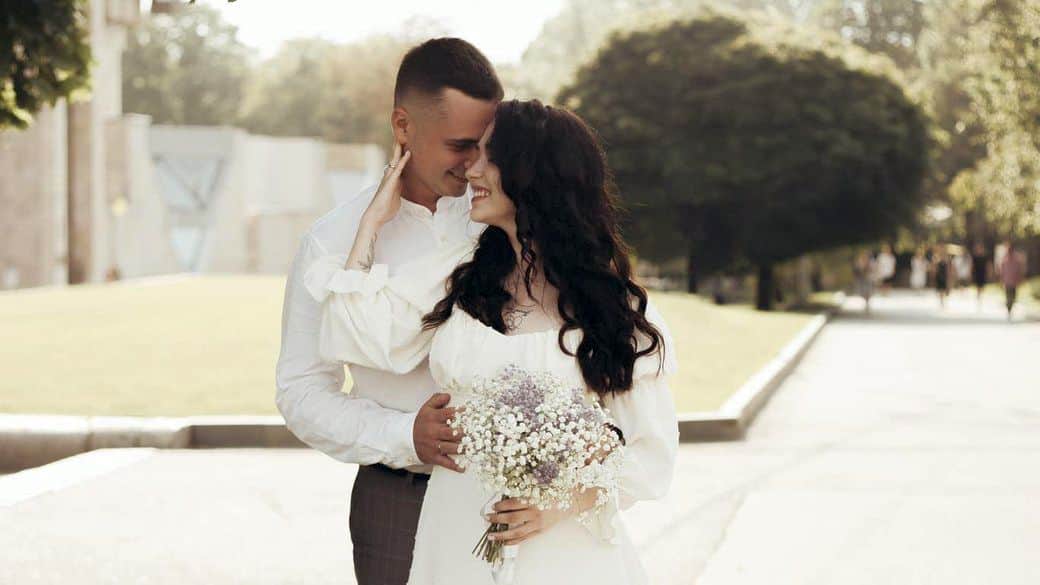
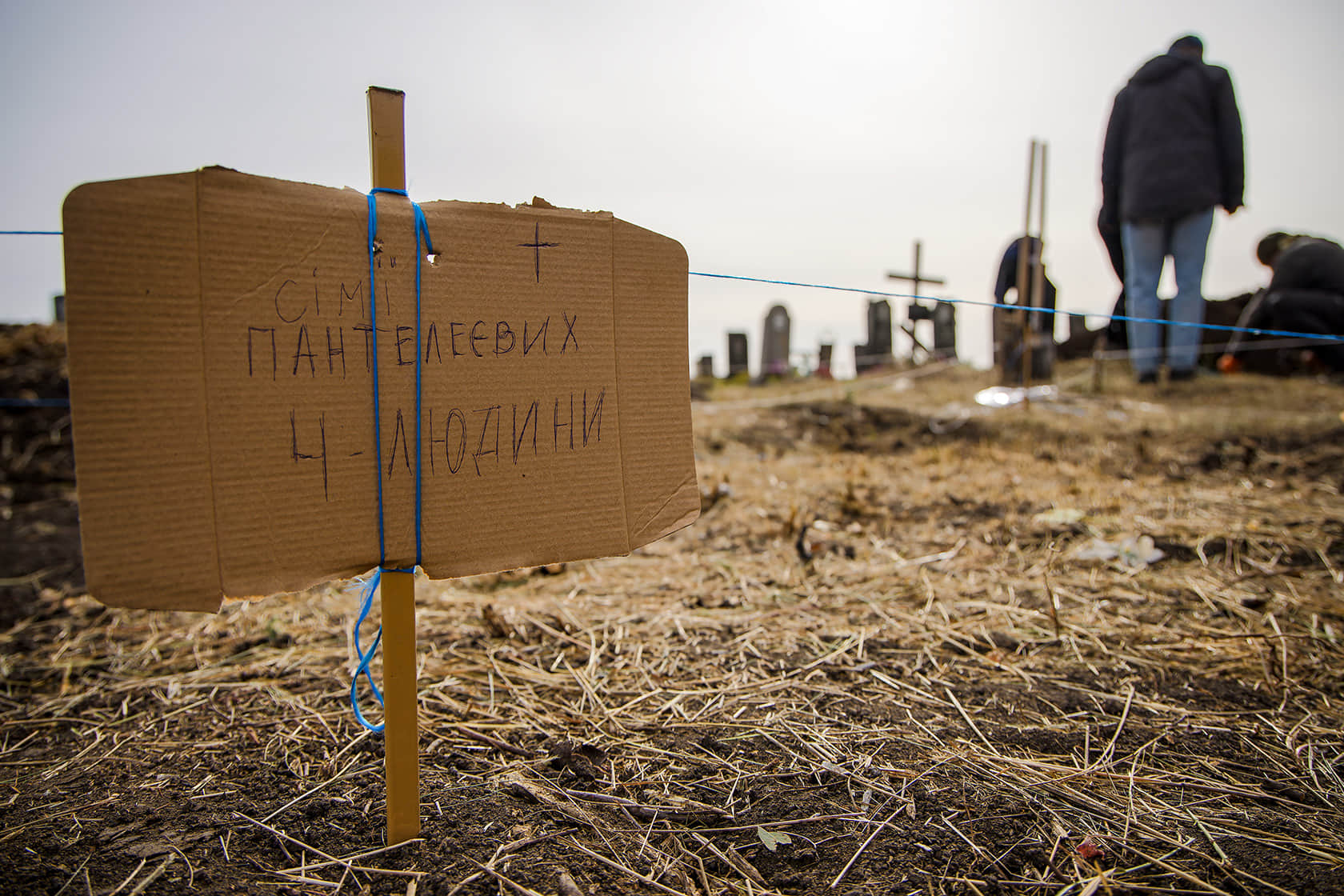
"The Panteleievs are my neighbours," pensioner Vira Yehorivna tells Ukrainska Pravda’s reporters. "The four children [three of them are adults – UP] lost their mum, dad, grandma and grandad."
Vira Yehorivna was at home when the attack took place. The kettle she had put on to heat up flew off the stove.
"I rushed over to the window, and there was this mushroom cloud – both black and grey – it was horrible!" she recalls. "I thought they must have hit the café. They must have. I saw my neighbour getting on his bike. I shouted: 'Where are you going?' And he said, 'My children are there!' [his daughter, his son-in-law and his Panteleiev in-laws were killed – UP]. My God, it's horrific."
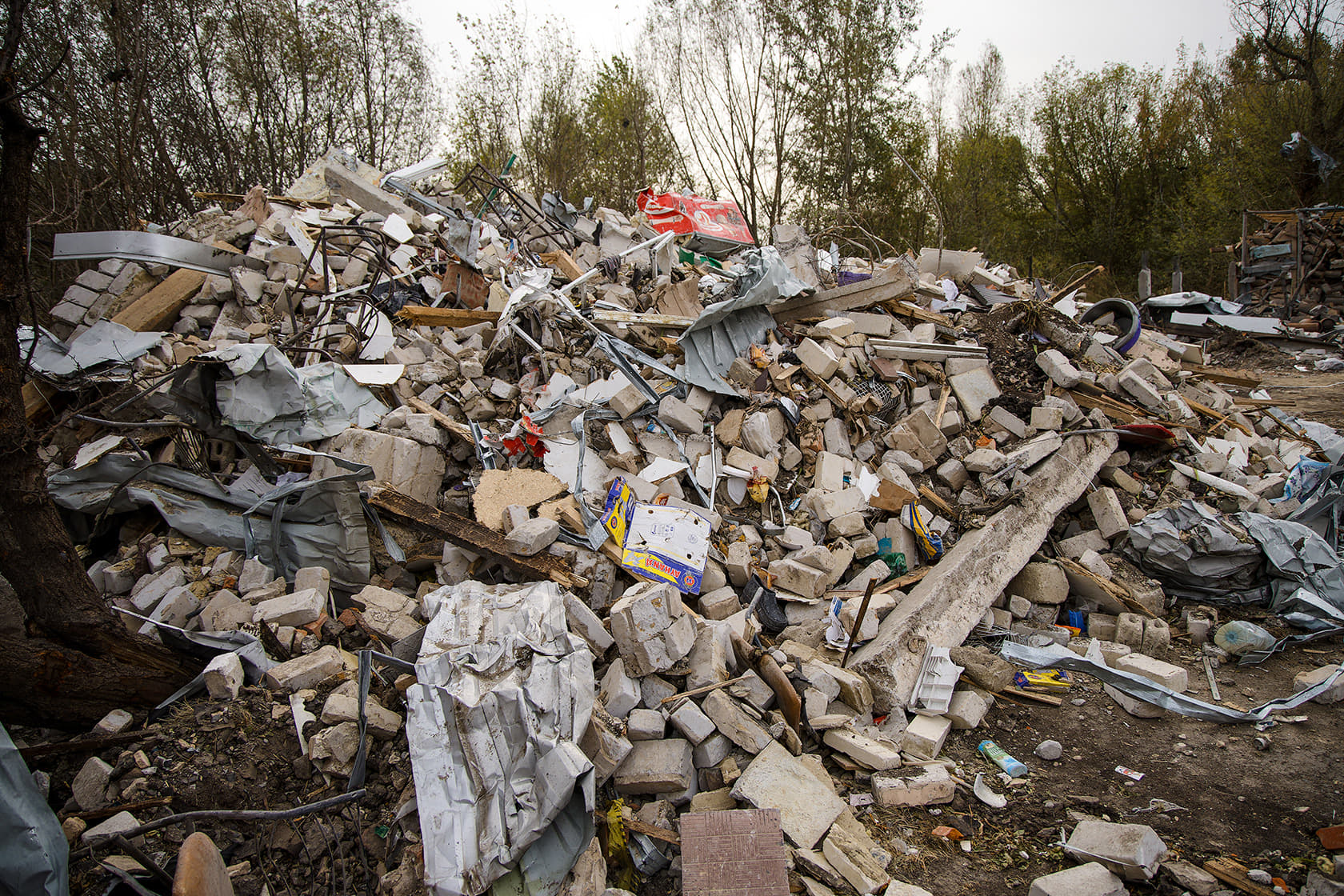
Vira Yehorivna is a native of Russia who graduated from university in the former city of Voroshylovhrad, now Luhansk. She has lived in Hroza for 49 years. Lately, she has been trying to understand the Russians’ logic.
"It’s so tragic," she sighs. "Were there any soldiers there? No. Just peaceful people - they were harmless! What was the point?
My sister called today. She said: 'There’s been nothing about it on TV. [Olga] Skabeyeva [a key Russian propagandist – ed.] said nothing.’ They’re always so gleeful [on Russian TV when there is an attack on Ukraine], and now they aren’t even reporting what’s happened in Ukraine. Why is Russia silent?"
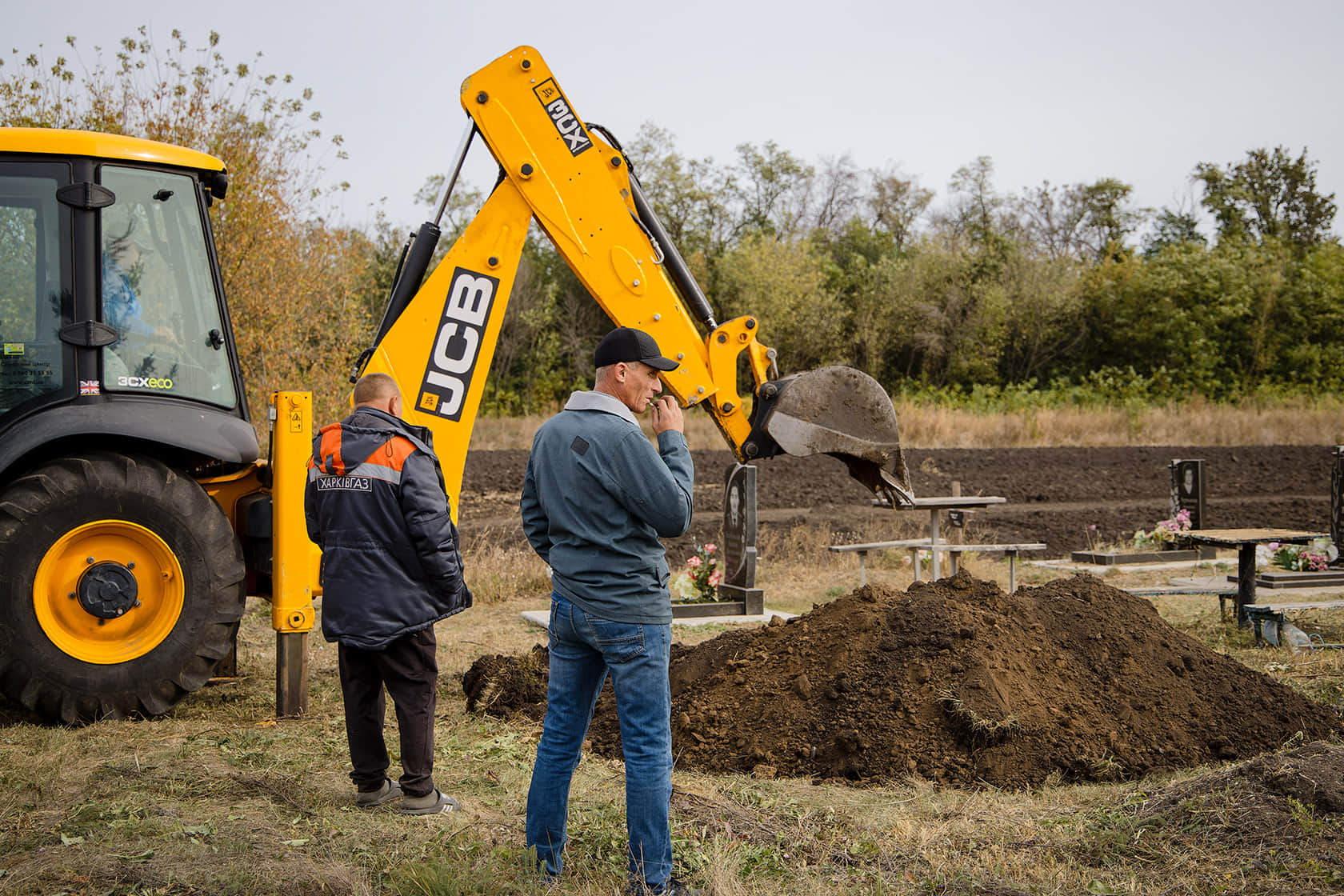
Local people
There’s a bizarre monument on Zelena Street in the centre of Hroza: an out-of-proportion idol with thick legs and no left arm. It holds a torch in its right hand.
A Russian missile killed over fifty civilians a few hundred metres away from this Soviet monument.
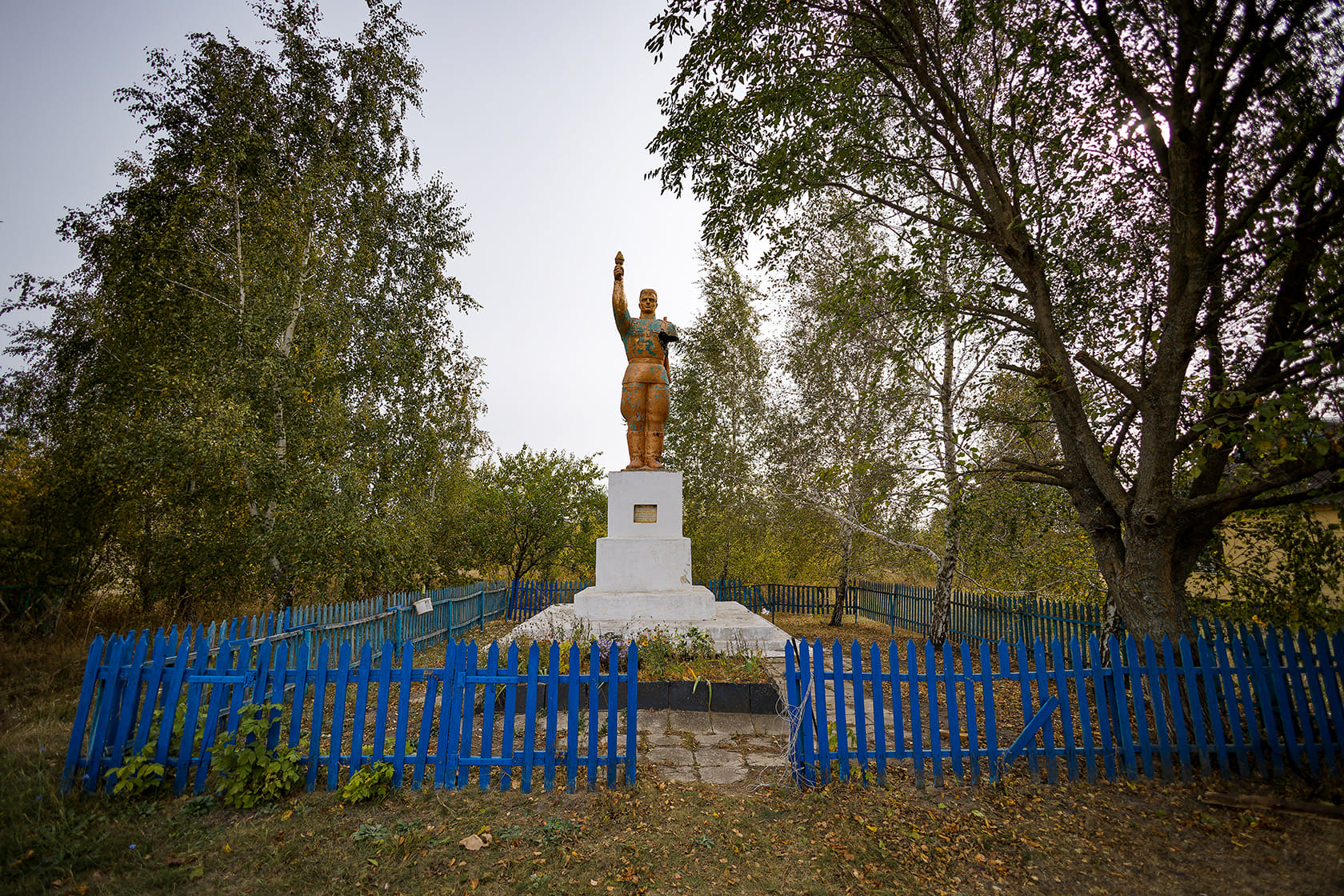
Amid the ruins of the shop and café, someone's shoes are still lying there. Pieces of crockery. A pile of blue latex gloves, used to collect the remains of bodies and material evidence.
There are votive lamps in a children’s sandpit made out of a tractor tyre. People bring flowers to lay there.
Valentyna Kozyr, one of the women there wearing black headscarves, rushed back to Hroza from Volyn with her sister Olha as soon as she learned about the attack.
Valentyna's husband Anatolii, her daughter Olha, her son Ihor and her eight-year-old grandson Ivan were all killed by the Russians. Her daughter-in-law, Oksana, is in a critical condition in intensive care.
Andrii Kozyr, whose memorial service was held on 5 October, and his family are relatives of Valentyna’s on her husband's side.
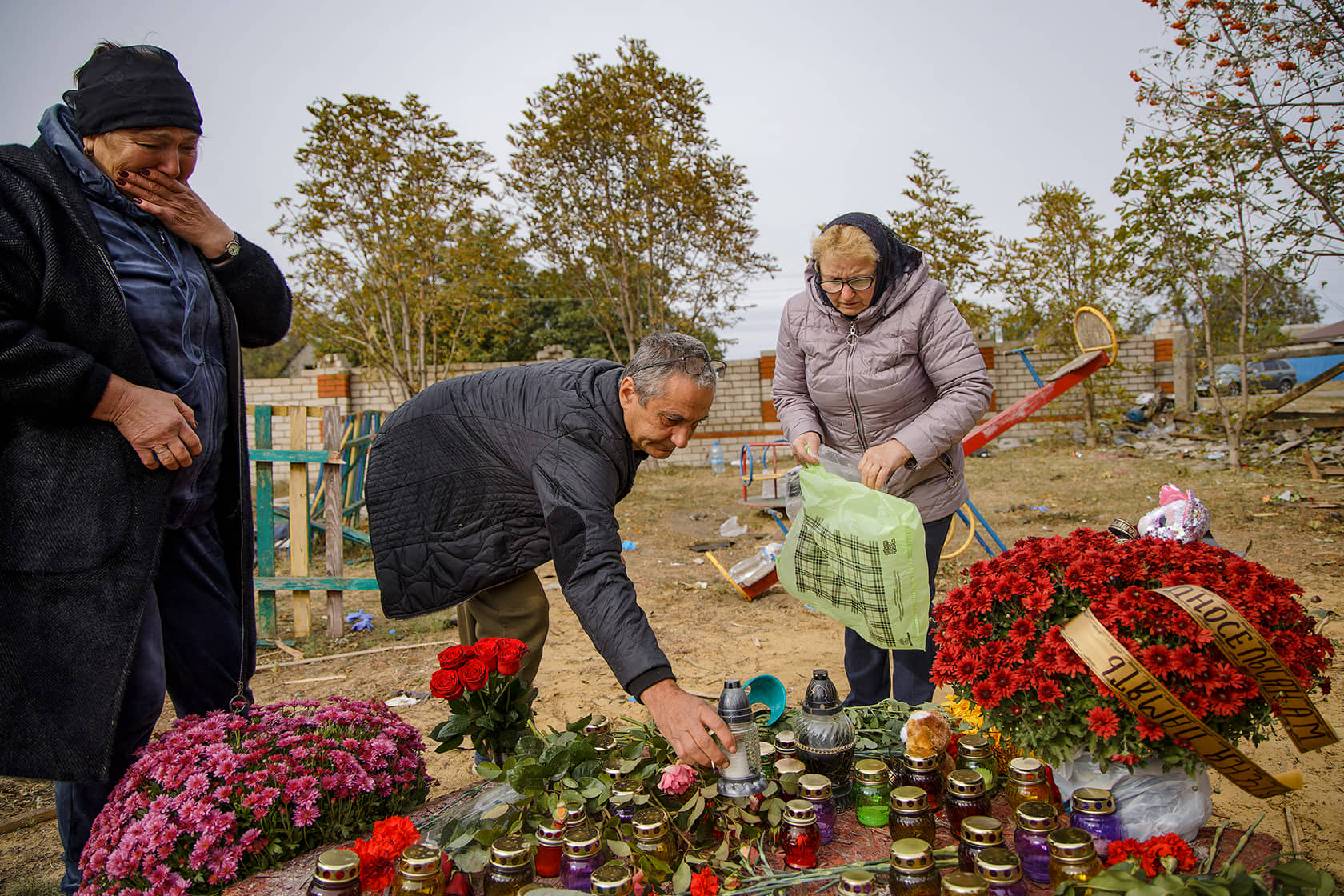
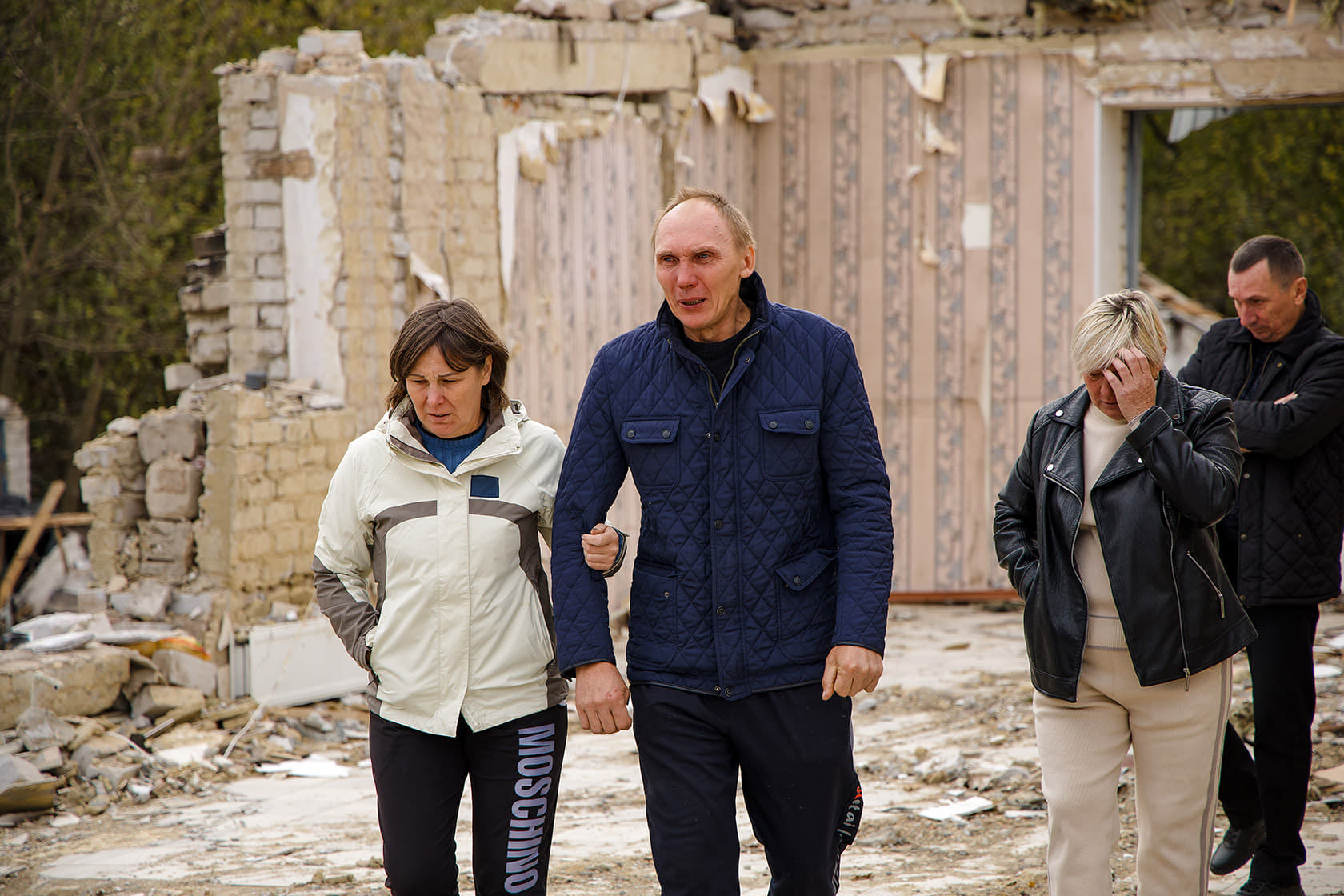
Valentyna left Hroza to live with her sister in Volyn, in northwestern Ukraine, after the village was occupied in 2022. She was unable to persuade her daughter Olha to come along.
"I begged her to leave the house! We don't need anything as long as everyone is alive. She was patriotic, like my son, but stubborn, just like her father. She said she was staying put. Here, you know, local people might have looted the house."
"I took my eldest grandson, Vladik [who is 14 – UP], and we left. He’s in Volyn now. I didn't take him with me this time so he wouldn’t have to see all this," the pensioner says.
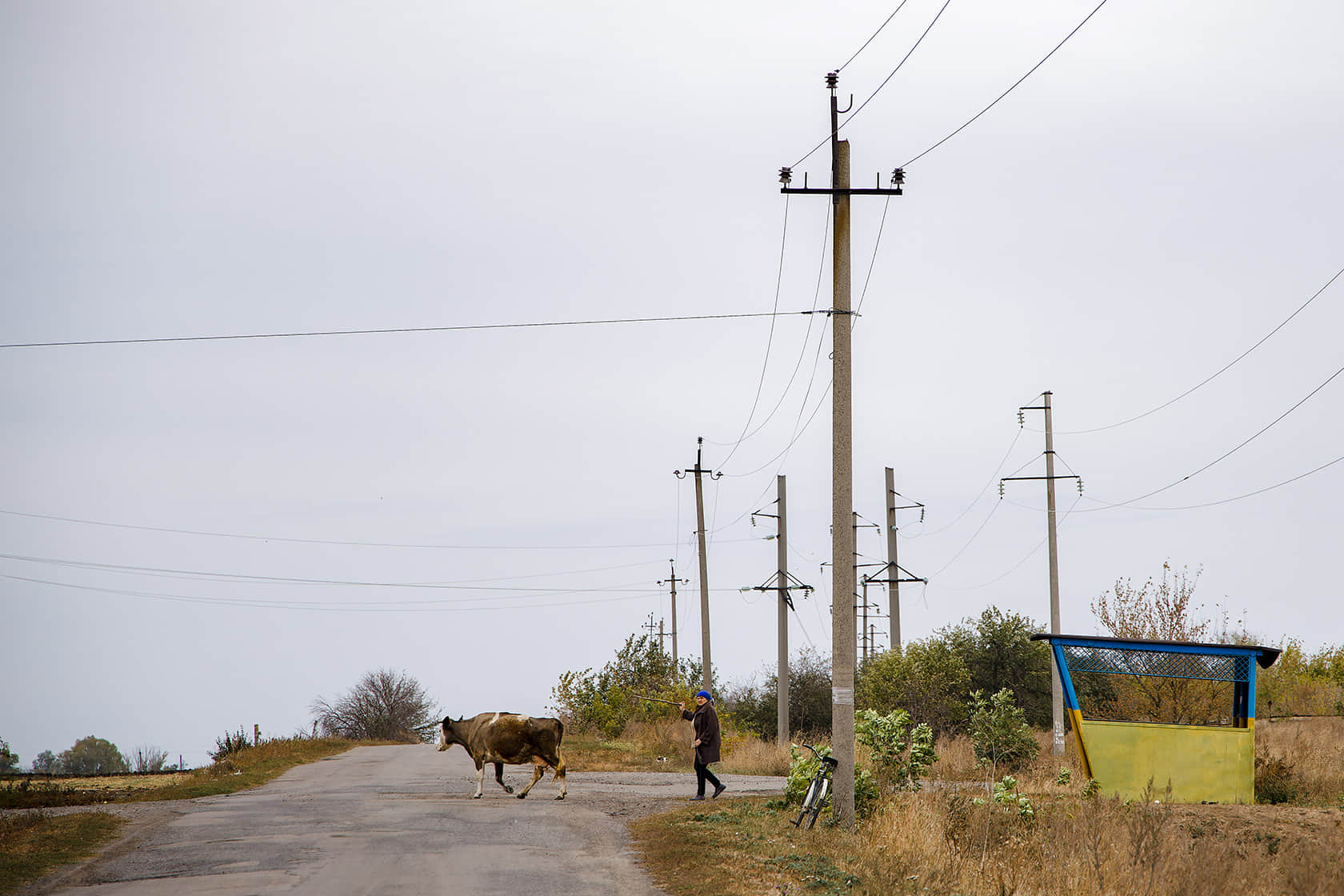
Valentyna recognised her daughter and husband immediately.
"I didn’t recognise my son or my younger grandson [eight-year-old Vanya – UP]," she says. There are no tears in her eyes now. "I gave my DNA yesterday. There’s a child lying there in the morgue. We don’t know if it’s ours.
Why do the Russians do this?" Valentyna says, staring into space. "I don't know what to say to them. God knows I’ve said everything I could about them."
"As soon as I found out, I said straight away: ‘Valya, it was someone local [who leaked information to the Russians - ed.]!" adds her sister Olha. "Somebody did this for the money. They [the Russians] knew. They knew!
Even here in Volyn, we have people who live in Ukraine, but they don’t live and breathe it."
The meeting place
On the evening of 5 October, a few hours after the tragedy, investigators came to the house of Nataliia Berezan, just as they did to others.
"They said: ‘Do you understand why we’re here?’" she recalls. "I said I did. They asked for my phone and checked it. They were looking for the person who might have helped [the Russians – ed.].
I think there are still some traitors in the village."
At the time of the strike, Nataliia was at work a few kilometres away from Hroza, and even there she heard a loud explosion. Her son Dmytro was at home, 50 metres from the café and shop.
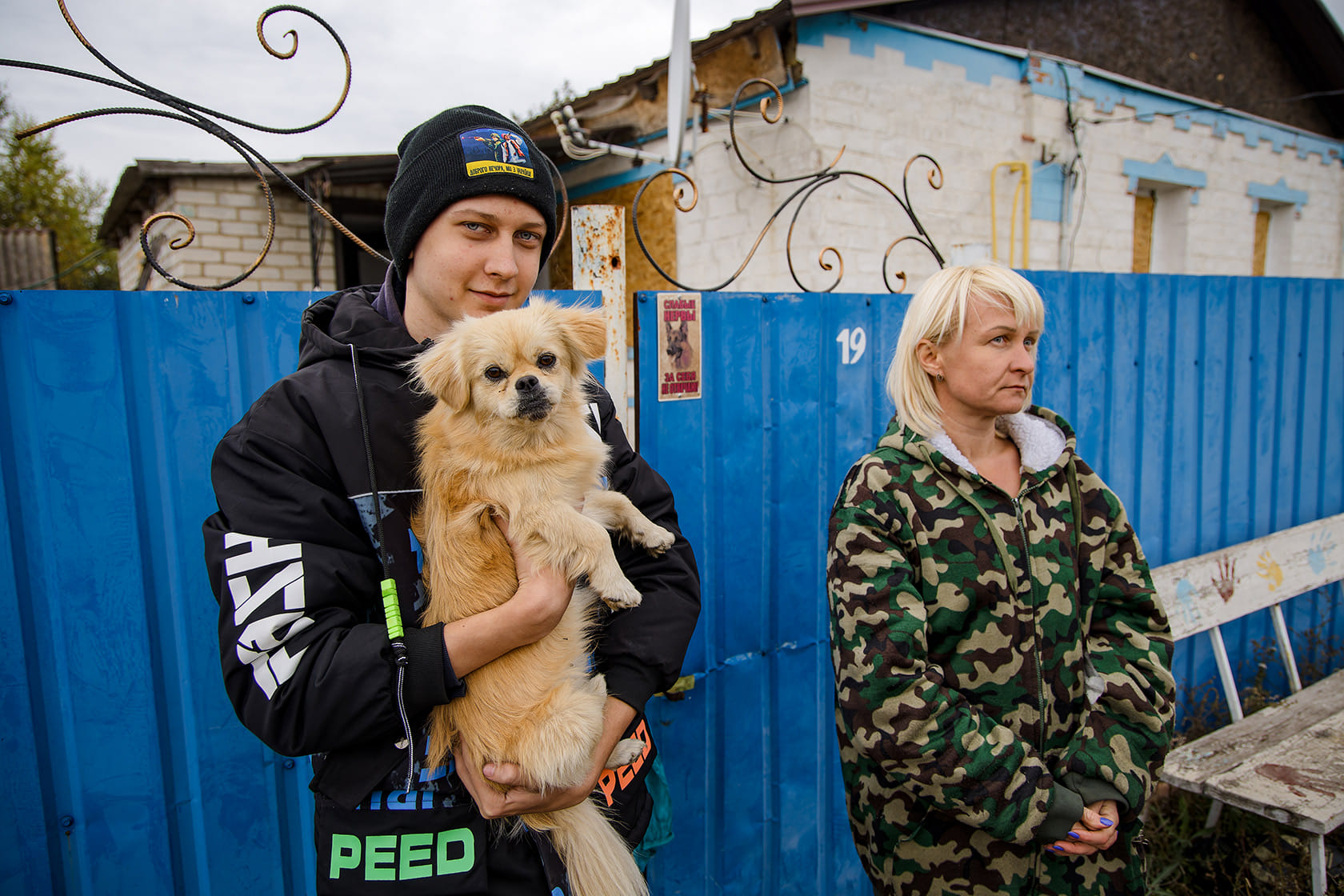
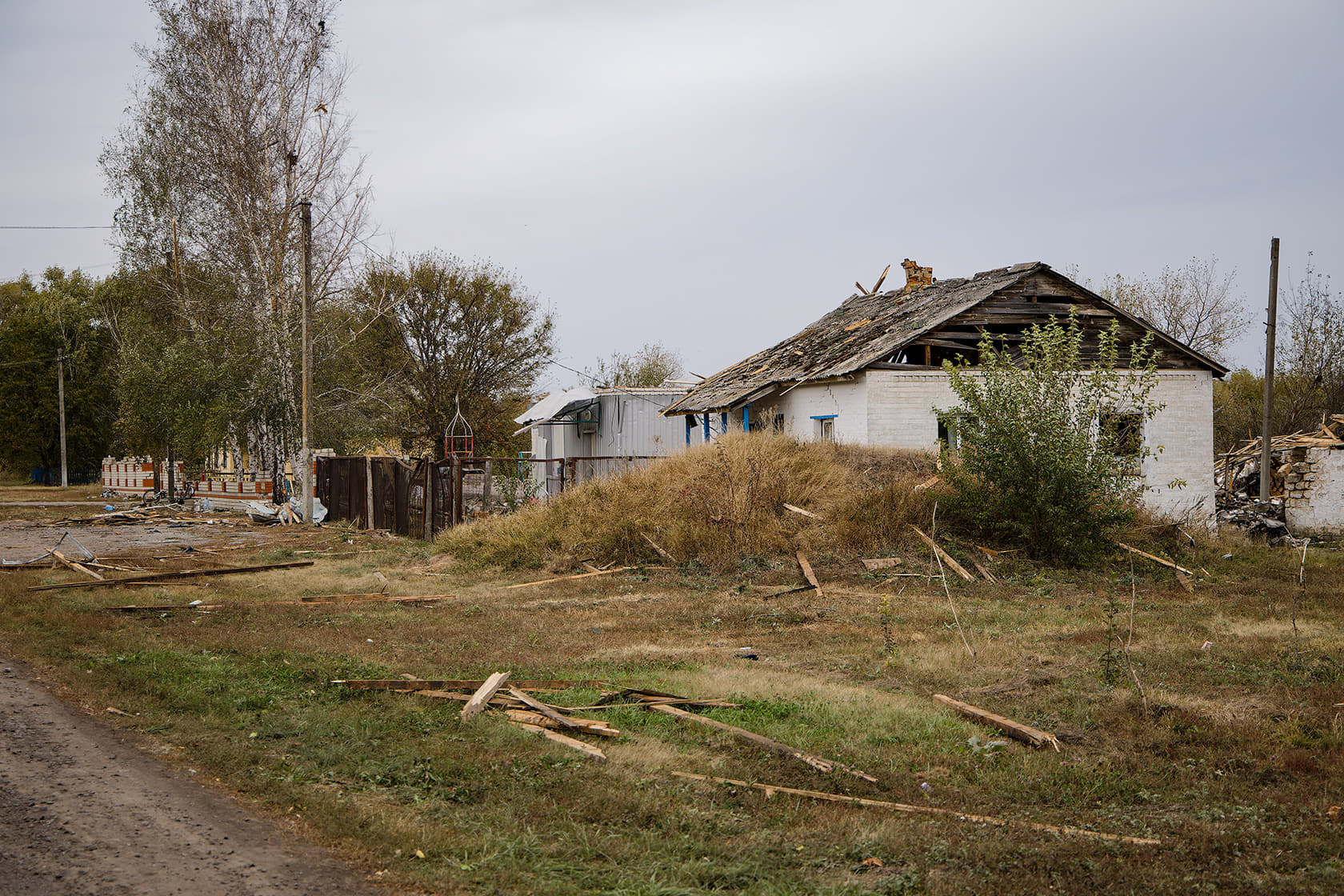
"I didn’t hear the sound of missiles," Dmytro says. "First there was a flash that came through the windows, then an explosion. I ran to the hallway and phoned my mum. Later I came out of the yard to have a look. The shop wasn’t there anymore, just smoke. People were beginning to gather to help the victims. Someone was being carried out on some pieces of cloth.
Dad called. He's in the Armed Forces of Ukraine. He told me to get away from there because there could be another strike."
The shock wave knocked out the windows in the Berezan family’s house. The roof shifted five centimetres, and the walls cracked. But Nataliia is fortunate, because no one in her family was killed in the attack.
"I came home from work straight away. People were screaming and crying. None of my family was there, thank God. But friends, acquaintances... Civilians. I feel so sorry for everyone. It wasn’t a military or strategic target," Nataliia says.
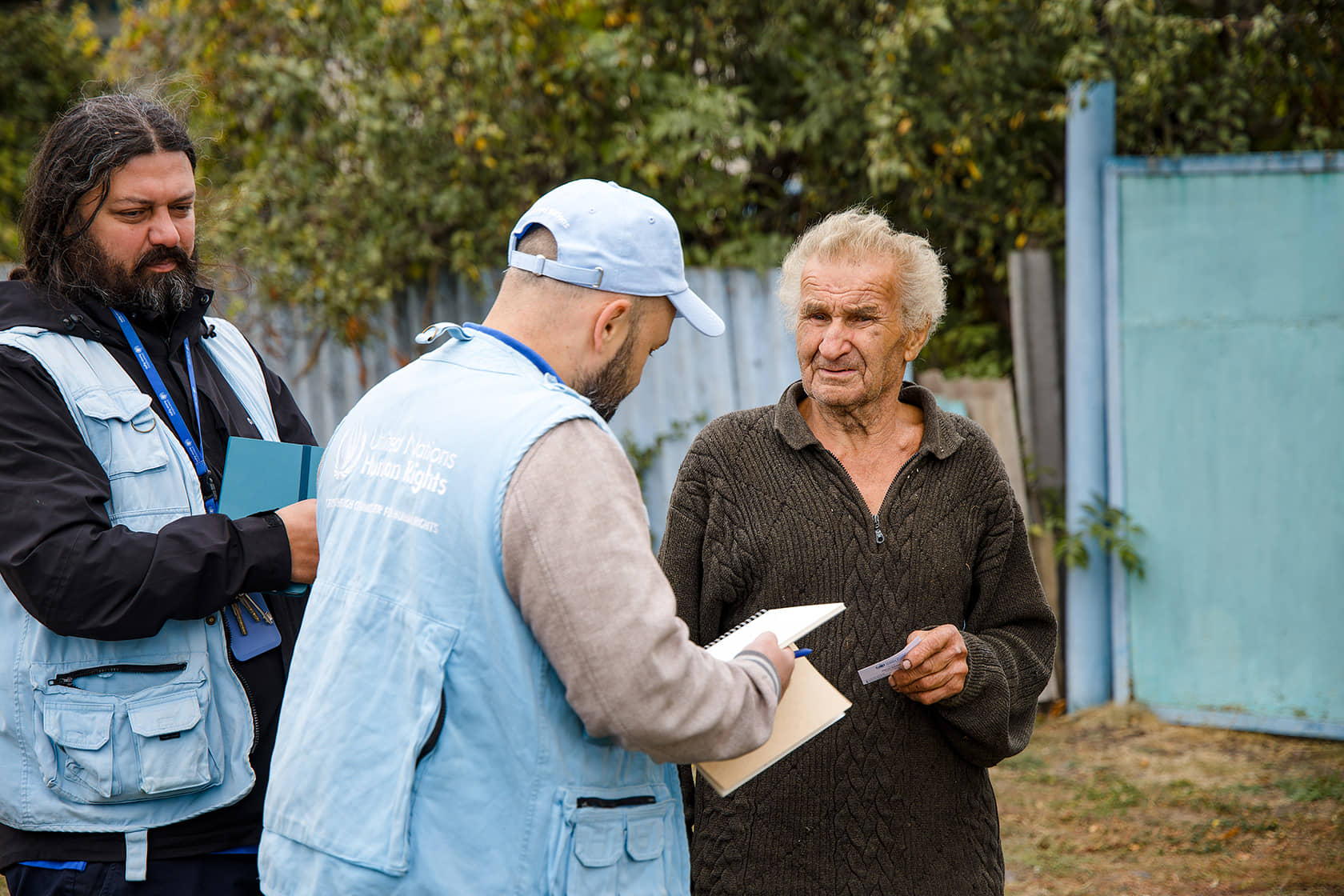
UN representatives are documenting everything that the residents of Hroza who were physically spared by the tragedy can muster the strength to remember and say. They go from yard to yard with notebooks, recording testimonies.
"We’re working at the request of your government," Danielle Bell, a Canadian human rights activist who has headed the UN’s human rights monitoring mission in Ukraine since the beginning of August this year, tells Ukrainska Pravda’s reporter. "What took place here is the deadliest attack this year."
"It’s too early for official statements, but I can say as a human that I was in tears," she continues. "It’s horrible. It’s the worst thing I’ve seen during my time in Ukraine. Fifty-two lives lost in just a moment.
Locals told me that this café was a meeting place for people in the community. It had a kids’ playground. What my team saw here was awful."
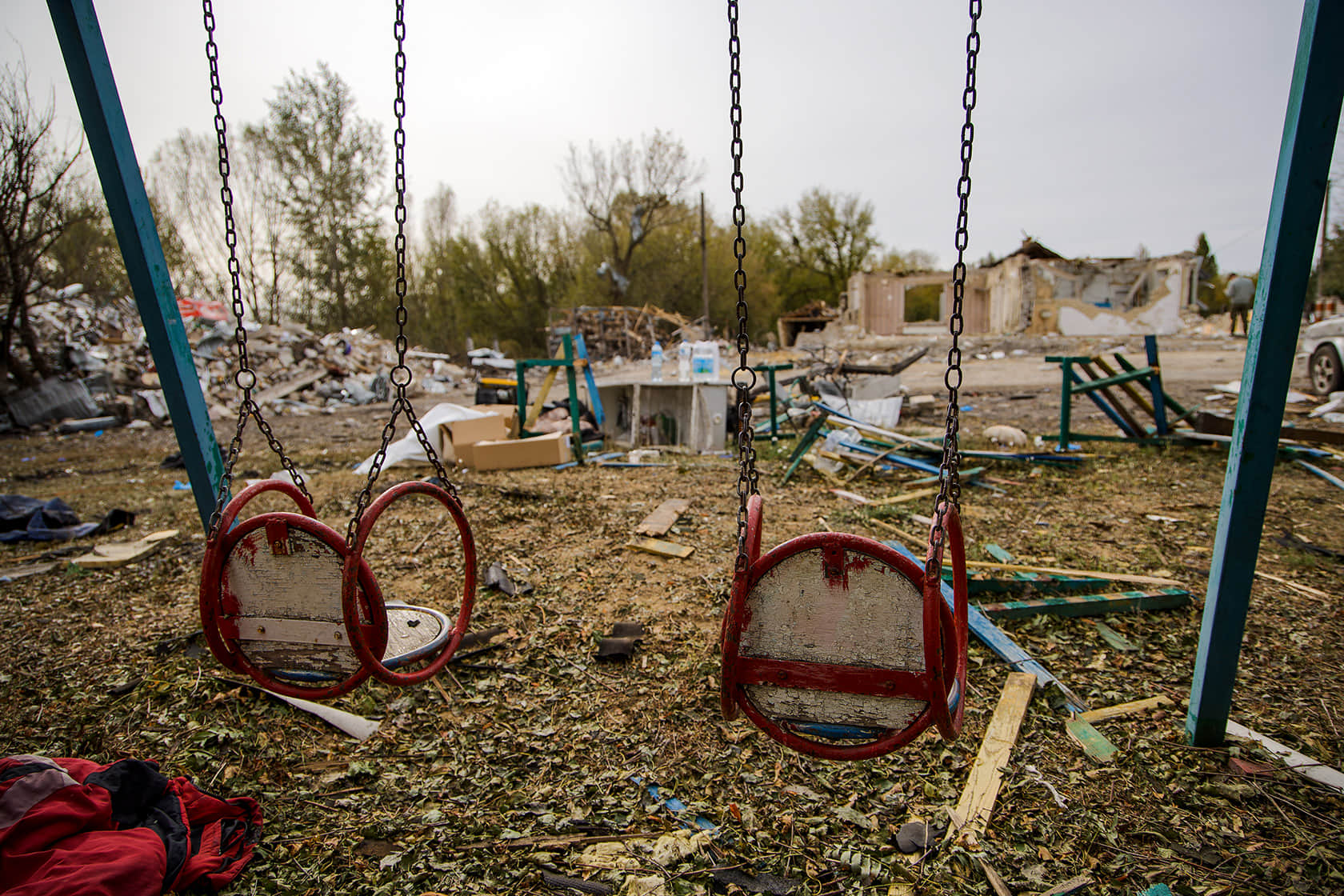
Back to the ground
The Hroza residents who survived the missile strike have already cried their share of tears. Now it’s as if they’re trying to put their feelings on hold as the funerals of their relatives and neighbours draw closer.
The everyday routine helps them to stay sane: geese wander the village streets, cows graze, and people tend to their vegetable gardens.
"If I knew who did it, I’d kill them with my own two hands, I swear," she says across the fence; she sounds tired. "The Russians are killing civilians. I’m sorry, guys, I need to finish up here and get ready for a funeral in Shevchenkove.
My husband’s relatives were killed, his cousin’s son and his wife. Maksym and Alina. They are survived by their two kids."
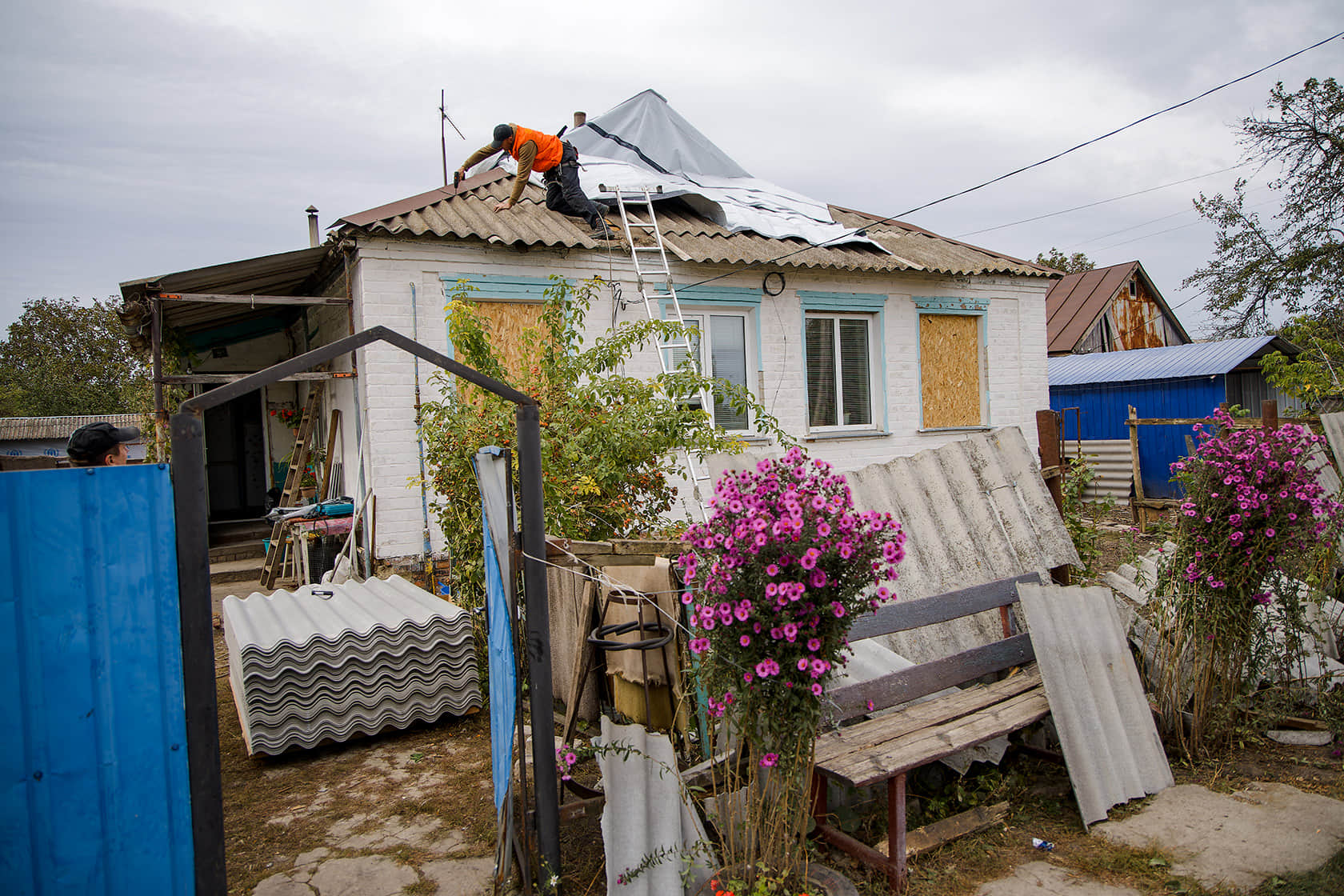
Beneath the outward composure of the people of Hroza, who have to get on with their lives, one can sense the fear of what might yet lie ahead of them.
The Russian missile has blown the ground out from under the feet of these people, who lived through the Russian occupation and had slowly started to rebuild their lives.
"We have a six-year-old. What do you think? Should we leave Hroza? It’s 35 kilometres away from the front. But there’s no point going anywhere if we have no money. I don’t know what to do," says Marharyta, a middle-aged woman who picks small green tomatoes with her elderly mother as we talk.
Around the corner from her house lies all that remains of the shop, the café, and those who came to the wake.
An elderly man on a bike approaches the site of the Russian atrocity. He goes over to the ruins, visibly unsteady.
He stops and stands still, hands clasped behind his back, then takes another couple of steps and stops again. A few more steps. A pause. As if he can’t find the courage to get any closer to the ruins.
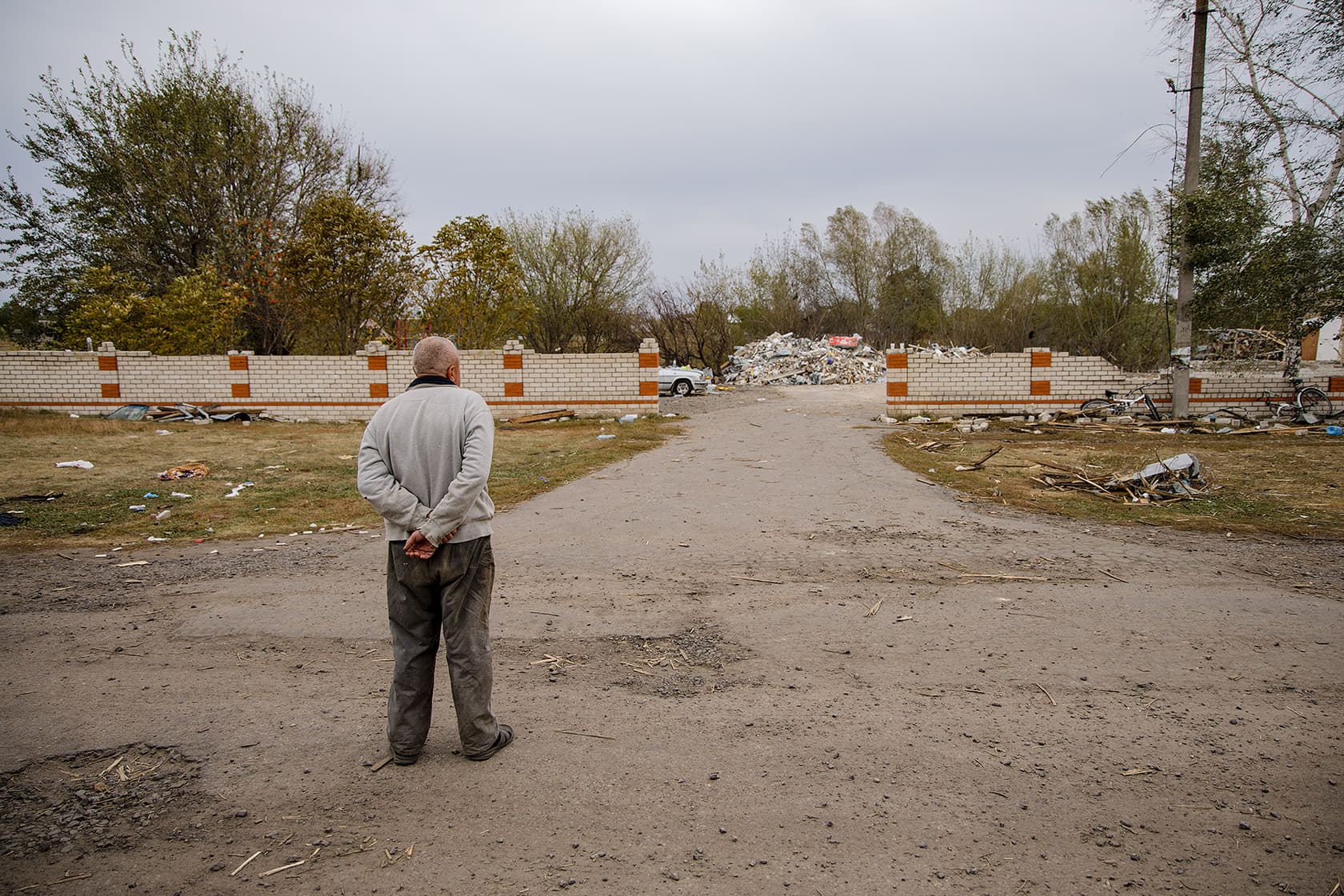
In his eyes you see a mix of astonishment, confusion, pain, despair, anger, and determination: feelings that no ancient dramatist could have described.
"He’s my neighbour," Nataliia Berezan says. "His father and stepmother were killed there.
You know, everyone in the village was so proud when the Kozyr family came back from Poland. So many people in this country are hiding or fleeing abroad. They did the opposite."
Yevhen Rudenko, Dmytro Larin – Ukrainska Pravda
Translation: Myroslava Zavadska, Artem Yakymyshyn, Theodore Holmes and Olya Loza
Editing: Teresa Pearce